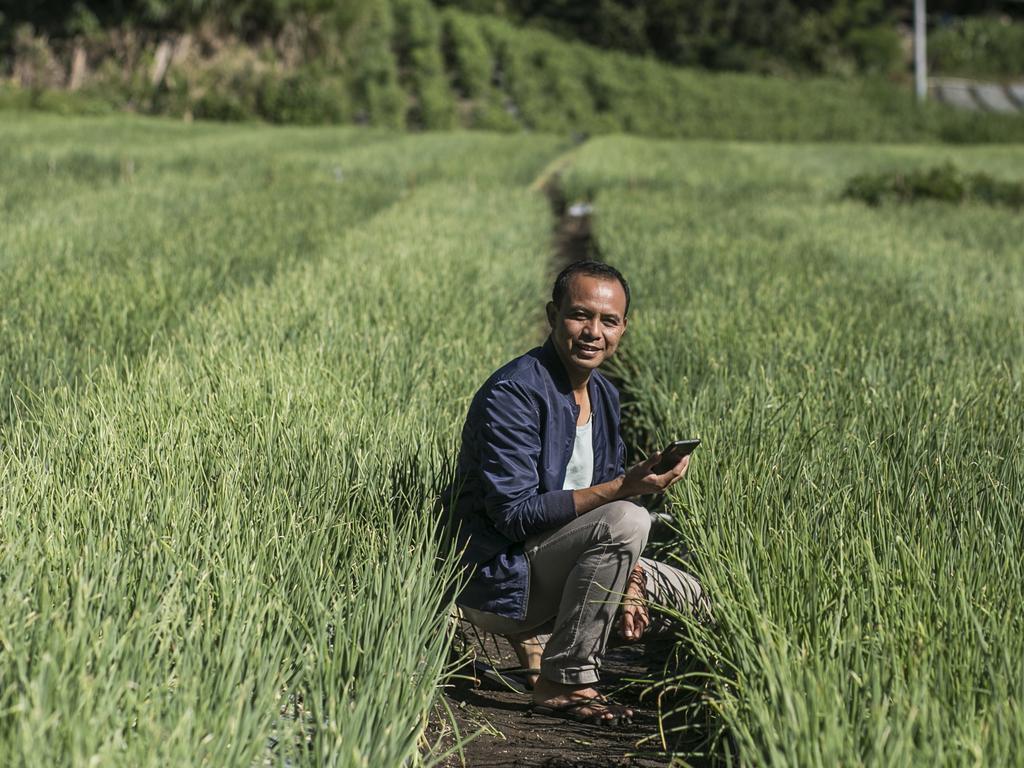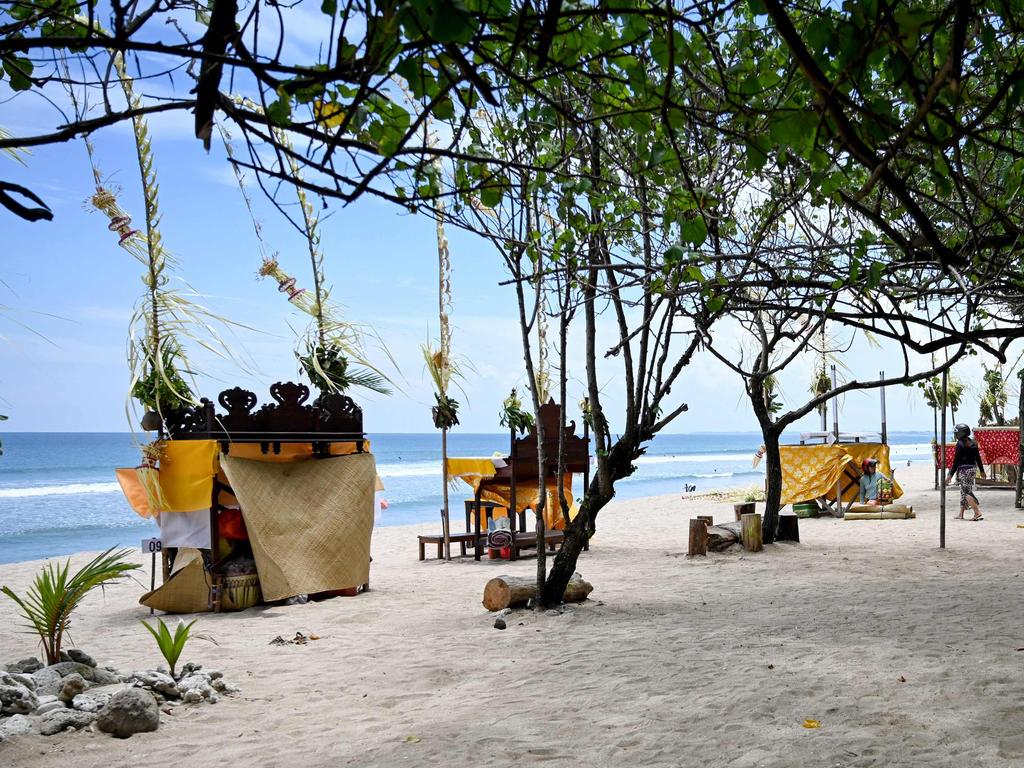Indonesian State Intelligence Agency enforces corona protocols on Bali
Indonesian intelligence officers have begun enforcing health protocols across Bali as the island suffers a surge in Covid cases.

Indonesian intelligence officers have begun enforcing health protocols across Bali as the island experiences a surge in COVID-19 cases, six weeks after reopening to domestic tourism.
Wawan Purwanto, a spokesman for the State Intelligence Agency (BIN), said officers would work with the provincial government and health units to educate the public and enforce protocols to ensure Bali’s tourism industry did not fail “because that would have large implications on Bali and Indonesia’s reputation”.
“There are some people in Bali who still don’t believe in the existence of this disease, they think this is a conspiracy. This is where we come in, we will explain this to the public. There are many who don’t take this seriously,” Mr Wawan told The Weekend Australian.
“There will be sanctions for violators. It can’t be just a set of rules without anyone overseeing it, making sure it is obeyed.”
The Bali government this week reimposed some COVID restrictions across the island, including studying from home, limitations on religious ceremonies, mass tourist attractions, and a 25 per cent capacity rule for all offices.

Bali’s infection rates have risen steeply since it reopened to domestic tourism on July 31 (though numbers have dropped during the current Hindu Galungan festival), mirroring a nationwide trend in which the caseload has doubled in the past six weeks to 236,519. The official death count from the virus in Indonesia is 9336 people, the highest death rate in the region.
The island was forced to postpone its reopening to international tourists on September 11 after the Indonesian government warned that it did not yet have the protocols in place to prevent or control a mass infection wave.
It is already running out of intensive care beds, with Bali health agency chief Ketut Suarjaya warning last week that COVID referral hospitals were close to capacity.
Deputy Governor Tjokorda Oka Artha Ardhana Sukawati told The Weekend Australian BIN’s involvement showed “how serious the regional government is and how serious the central government is”.
“Tourism and tourists are important to Bali and its people. We all know that Bali’s tourism has taken a hard hit in these months, so the central government has ordered everyone, including BIN, to help Bali.”
Still, its deployment has raised eyebrows, and yet more questions about the increasing militarisation of Indonesia’s COVID response.
BIN was criticised last month for trying to fast-track approval of a COVID drug treatment it jointly developed with the Indonesian military and Airlangga University.
Marcus Meitzner, an Indonesia expert with the Australian National University, said the agency’s latest role was “part of a concerning upgrading of BIN’s position since the beginning of the COVID-19 outbreak”. “It has also played a role in conducting rapid COVID-19 tests across the country, while it is not clear under what authority it is doing this.”

Balinese authorities began imposing fines last month on those who did not wear masks in public, with many foreigners caught up in the enforcement drive.
Scott Morrison revealed on Friday that as many as 7000 Australians remained in Bali, though it was not clear how many wanted to return to Australia.
Australian chef Penelope Williams, who runs Bali Asli restaurant in northeast Karangasem Regency, said most tourist businesses were strictly adhering to health protocols but there appeared to be widespread disregard for mask-wearing among foreigners.
“It’s disappointing because a lot of the people who aren’t wearing masks are expats,” she said. “For some reason, these people won’t get off their high horse and do the right thing.”
Ms Williams said she wasn’t concerned about the presence of intelligence officers because “as long as you’re doing the right thing here you don’t have anything to worry about”. “I make a big point of following the rules because my restaurant will be at risk if I don’t. Imagine if one of my staff, or if I came down with COVID? That would be disastrous.”
Dylan Hayllar, the Australian manager of popular Canggu bar and restaurant The Lawn, said his venue had experience a “nice buzz in August” with tourists from Jakarta and Surabaya seeking respite from the relentless COVID surge in those cities, though it had gone quiet again since the Jakarta lockdown this week.
Mr Hayllar said The Lawn was strictly following protocols by capping numbers to 40 per cent capacity and making all staff wear masks. Guests also had to wash their hands before entering and were generally understanding about the restrictions. But he admitted he was uncomfortable with Indonesian intelligence agents policing Balinese tourist venues.
“I don’t want them scaring off my customers,” he said. “Bali thrives and survives on tourists.”







To join the conversation, please log in. Don't have an account? Register
Join the conversation, you are commenting as Logout